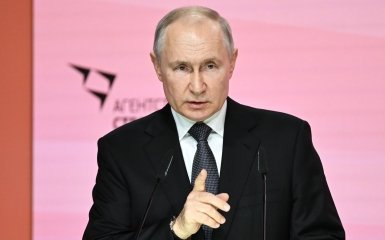Russian dictator Vladimir Putin ordered his propagandist minions to create informational conditions to destabilise Moldova.
Moldova may become a new victim of Putin's regime
The American Institute for the Study of War concluded that the Kremlin will do everything to prevent Moldova's integration into the EU and the West.
For example, recently, one of the representatives of the Ministry of Foreign Affairs of the Russian Federation, Alexei Polishchuk, publicly complained that the official Kishinev began to "destroy its ties" with the CIS member states and the Russian-led CIS organisation as a whole.
As it turned out, the Kremlin was frightened by rumours that Moldova intended to leave the CIS by the end of 2024.
Moreover, according to Putin's henchman, the settlement of the Transnistrian issue in Moldova is in a "deep crisis".
Polishchuk laments that the economic pressure of President Maia Sandu's team on Transnistria from the beginning of 2024 has "delayed even more" any solution.
According to him, official Moscow is ready to establish relations between Moldova and the PMR "as a mediator and guarantor" in the settlement.
On January 28, the Deputy Prime Minister of Moldova Oleg Serebryan stated that Moldova will not return to the negotiation process regarding Transnistria in the 5+2 format until Russian-Ukrainian relations improve and Russia's war in Ukraine continues.
Russia's aggression against Moldova may be repeated again
Recently, the ISW team already warned that Russia is actively creating informational conditions to justify future Russian aggression in Moldova under the guise of protecting its "compatriots abroad" and the "Russian world".
Russia may try to justify its aggression or destabilization efforts in Moldova by claiming that the people of Transnistria are in danger because of Moldova's alleged rejection of the settlement process in Transnistria.




